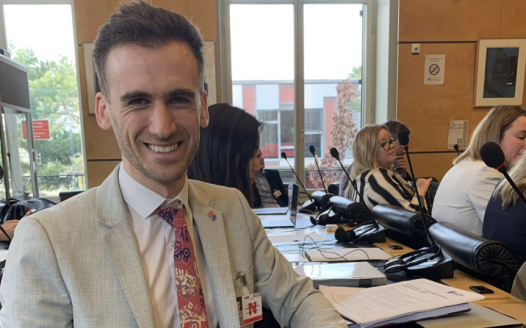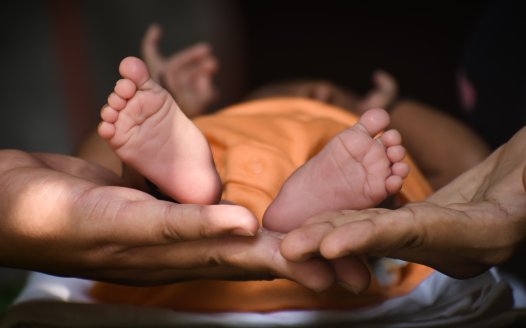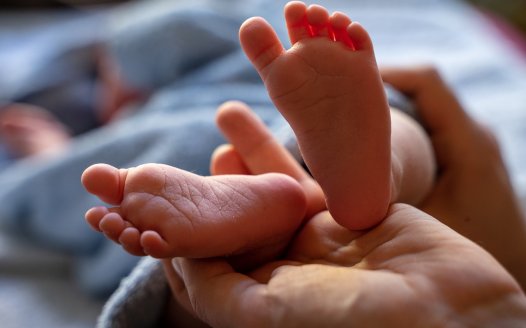Our health system is failing to protect children from ritual circumcision
Posted: Wed, 2nd Nov 2022 by Alejandro Sanchez
While UK medical bodies tie themselves in knots on ritual male infant circumcision, untold numbers of boys are being subjected to a painful, risky and irreversible procedure, says Dr Alejandro Sanchez.
In 2008, the Chief Medical Officer for Scotland wrote to health executives informing them that ritual circumcision was to be provided on the NHS. "[I]n the interest of the wellbeing of the child", he wrote, the procedure would be carried out under general anaesthetic by a paediatric surgeon in one of four specialist paediatric centres.
Hospital guidelines added "doctors agree that a surgical circumcision should always be carried out under a general anaesthetic. This is safer and less painful for your child".
In September, the NSS sought clarification from the Chief Medical Officer: what were the implications of these rigorous strictures for religious circumcisions performed outside of the NHS? The CMO would not be drawn.
In the face of inconvenient questions regarding ritual circumcision, such intellectual and ethical contortion is all too common. UK medical bodies maintain that children subjected to ritual circumcision in clinical settings must be 'protected' by strict safeguards. Those circumcised in the community, however, are on their own.
We should, of course, be gravely concerned that ritual male circumcision is permitted on medical premises at all. The practice is non-consensual; not medically indicated; constitutes 'significant harm' under the Children Act 1989 and is deferrable until the age of consent.
The notion that Female Genital Mutilation (FGM) would be permissible if carried out in an operating theatre is, naturally, repellent. Medicalised ritual circumcision deserves equal disapprobation and contempt.
The physical harm of ritual circumcision is now incontrovertible: eleven boys were admitted to Birmingham Children's Hospital in just one year with life threatening haemorrhage, shock or sepsis post-circumcision. Three baby boys, Celian Noumbiwe, Angelo Ofori-Mintah, and Goodluck Caubergs, have bled to death post-circumcision in recent years. And the evidence of psychological impacts is also growing.
British Medical Association (BMA)
Nonetheless, UK medical bodies have set out their stalls on circumcision. The British Medical Association's 2019 guidance advises that circumcision can be used to treat medical conditions such as pathological phimosis (overly tight foreskin) but only when less invasive measures such as steroid creams or stretching would prove ineffective. To act otherwise would be "unethical and inappropriate." This, by itself, would be sound clinical and ethical advice.
The BMA, however, provides one caveat: an otherwise "unethical and inappropriate" circumcision may proceed if there are "relevant social and cultural interests". Thus, the circumcision is somehow morally transformed by the coincidence of the parents' religion.
Such doublethink is beneath the BMA and represents a dereliction of duty. All children, including those born to Jewish or Muslim parents, deserve equal protection from ritual circumcision. If, upon reaching the age of consent, that child still wishes to undergo the procedure, that remains their prerogative.
Care Quality Commission (CQC)
Let us turn now to the mental gymnastics of the Care Quality Commission, the organisation tasked with inspecting healthcare facilities in England. Their recommendations are, superficially, robust: "we would expect providers to ensure that the provision of non-therapeutic male infant circumcision services is safe and appropriate."
But when pressed in a Freedom of Information request, the CQC was unable to confirm if ritual circumcision without general anaesthetic was "safe". Likewise, it was silent on the safety of physically pinning down children undergoing circumcision.
Both these practices were described in a dossier submitted to the CQC by whistle-blower paediatric surgeon Mr Shiban Ahmed. The state of UK circumcision practice was "barbaric and amateurish", he said, adding that "the NHS is allowing babies to be maimed". How the CQC responded, if at all, remains unclear.
General Medical Council (GMC)
Perhaps the General Medical Council, the professional regulator of doctors, might have the moral courage to speak up? After all, it has a statutory obligation under the Medical Act 1983 to "protect, promote and maintain the health, safety and well-being of the public".
Would that it were. "You should usually provide" procedures for "mainly religious or cultural reasons", states their 2013 'Personal beliefs and medical practice' guidance. A seemingly more pressing concern was relayed to Dr Antony Lempert, head of the Secular Medical Forum: "You have no idea how offended the chief rabbi would be if we were to change our guidance."
Where does this leave the state of circumcision in the UK? It must be carried out under general anaesthetic by a paediatric surgeon, except where it need not be. It can only be carried out where conservative measures have failed, except where they haven't. It can only be carried out when it is safe, except we don't know what safe means. And the status quo must be upheld lest we offend religious authorities.
This tortuous entanglement is morally unsustainable. It is this gordian knot, not the foreskin, that should be cut.
Image by PublicDomainPictures from Pixabay
End forced genital cutting
We are committed to ending all forms of forced non-therapeutic genital cutting. Join our campaign.








